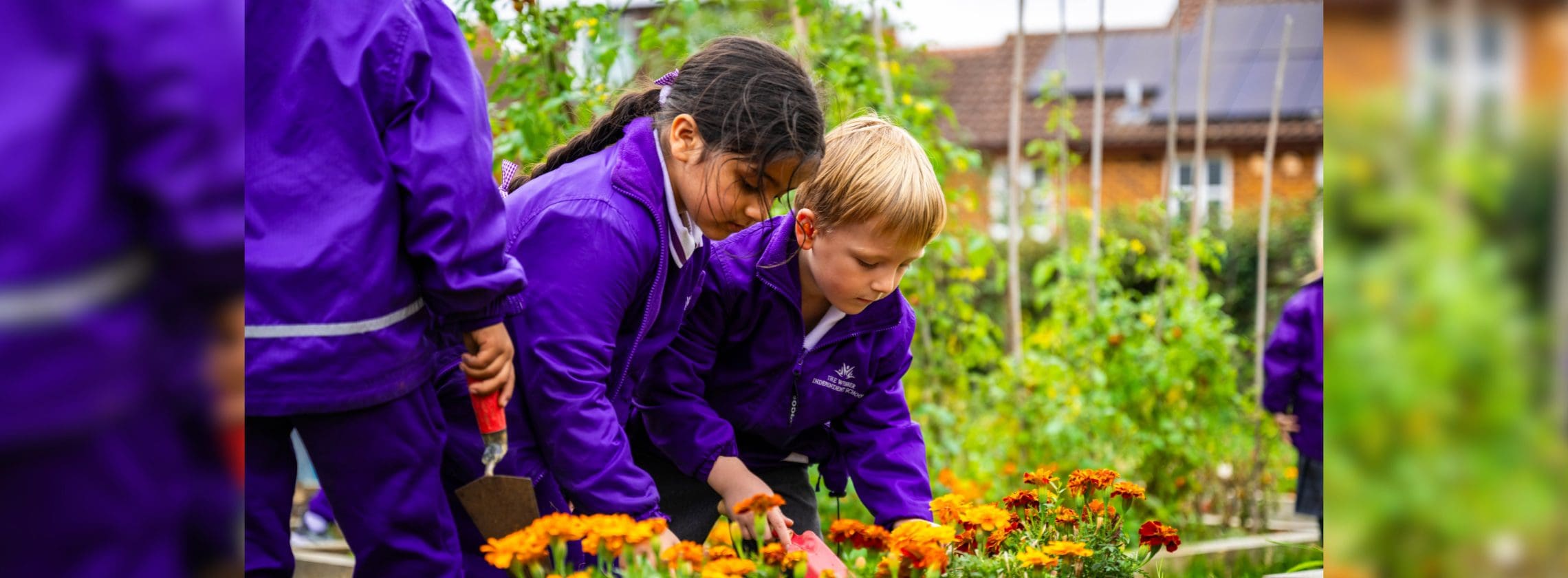The Webber Independent School understands the importance of students getting outside, and although the winter months bring barriers such as lower temperatures, wet weather and darker skies, the benefits of getting outside and into the fresh air far outweigh the cold.
Holistic development in areas such as physical, emotional, intellectual and moral/spiritual, as well as the social benefits underpin the curriculum and the school prides itself on the Webber Family approach to inspirational learning.
The Webber aims to build a culture for outdoor ecological learning alongside the school’s priorities for 2024; Webber Goes Green, Memorable Learning and Wellbeing, and with dedicated lead Mrs Paris to help encourage and nurture the children’s outdoor learning across the whole school, aged six months to 16 years, in four different ways:
- Curriculum-Based Outdoor Learning: Taking the learning outside the classroom and reinforcing the Science, Maths and English. Well planned sessions are delivered and assessed just like in the classroom. This style of learning suits kinaesthetic learners’ needs, and makes learning relevant, real and more memorable.
- Environmental Education: Students go outside to look at the change in seasons. They look for ways to improve the environmental impacts humans and animals have. This improves learners’ empathy for the environment, their sense of global citizenship and stewardship.
- Nature-Based Play: Free play in nature. The children have an invitation to explore and use their senses to play. It is intrinsically motivated and child-led using the natural environment, which helps children’s wellbeing.
- Forest School: This is also free play in nature, but involves more risky play involving equipment such as tools and fire. It is an invitation to children to take a controlled risk with adult supervision. Great for children’s growth mind set, imagination and resilience.
The Webber school teachers and support staff understand all children develop separate areas of growth at different rates and in different ways, these areas all need to work together to form the whole child. For example, if the focus is only on one area of a child’s development (e.g. intellectual skills), this will not allow the child to develop fully and fulfil their potential.
The Webber believes ecology allows child-led learning and outdoor investigations to encourage the holistic, mental health and wellbeing growth within students. As well as the individual life skills developed in using tools and survival skills, students are provided with opportunities in small group activities that enhance social competency, team-building skills and problem-solving capabilities.
Evidence from outdoor learning has shown that children’s self-esteem and self-respect are increased during a prolonged programme. This can be done by building upon small achievable tasks just within the children’s range, allowing success to be achieved and self-worth developed.
The whole school has embraced and developed many ways to engage in outdoor learning, including mental health walks for teachers and students, Eco student council and Student Ambassadors, as well as Gardening Club and Bee Club for all years, which produce fresh fruit and vegetables for the kitchen as well as plant sales and Webber Honey for parents and the local community to enjoy.
Mrs Paris said:
“Since introducing the Ecology curriculum to the Junior School and outdoor learning in the Nursery, I can certainly see how some of the children benefit from their time outside, as well as becoming empathetic towards their natural environment and the barriers we face environmentally. It is all very positive, and exciting, and long may it continue!”
To find out more, call 01908 574740, email info@webberindependentschool.co.uk or visit The Webber Independent School website.













